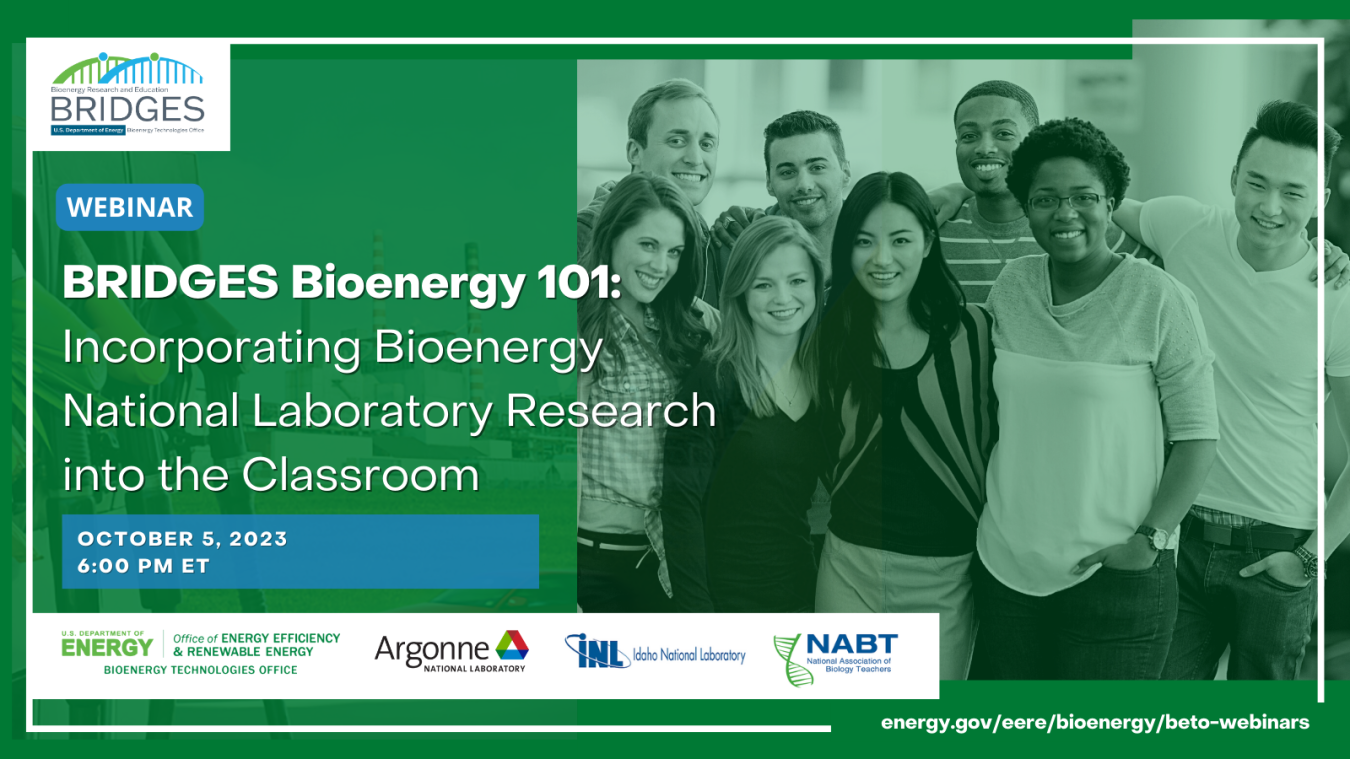
The U.S. Department of Energy’s Bioenergy Technologies Office & National Association of Biology Teachers are Partnering to Bridge Today’s Problem Solvers to Tomorrow’s Clean Energy Future
Register for the Bioenergy 101 webinar today!
Are you interested in providing hands-on, data-centric bioenergy experiences in your classroom?
The Bioenergy Research and Education Bridge (BRIDGES) Program is partnering with the National Association of Biology Teachers (NABT) to host the BRIDGES Bioenergy 101 webinar at 6 pm (ET) on Thursday, October 5, 2023, to introduce educators to bioenergy national laboratory research that can be integrated into educator’s classrooms. Bioenergy knowledge is not required.
Created by the U.S. Department of Energy (DOE) Bioenergy Technologies Office (BETO), in collaboration with Argonne National Laboratory and Idaho National Laboratory, BRIDGES is a bioenergy education curriculum that includes four case studies covering sustainable aviation fuel (SAF), upcycling plastics, bioenergy feedstocks, and waste-to-energy potential.
Each case study toolkit includes a student and instructor guide focused on authentic research and development (R&D) scenarios using bioenergy technologies. A major advantage of teaching with BRIDGES case studies is that students will develop and strengthen skills in problem solving, complex decision making, and understanding research and development dynamics. BRIDGES case studies can be taught in diverse settings, including high schools, technical and community colleges, and universities, and are designed to introduce students to exciting careers in the bioenergy industry.
6 reasons to attend this webinar:
- Receive an overview of BRIDGES
- Access the BRIDGES National Laboratory Case Study Toolkits
- Acquire tools for empowering Science, Technology, Engineering, & Math (STEM) teachers to facilitate learning with knowledge-building bioenergy curriculum
- Gain insight into a SAF case study and how to integrate it into your lesson plans
- Discover how each case study can provide opportunities to understand culturally responsive agriculture and energy practices, while increasing awareness about environmental and community impacts
- Learn how a student-centered approach to learning with case studies can be a valuable teaching tool to explore STEM and STEM-adjacent careers
Register today to reserve your spot to broaden your students’ clean energy knowledge!

